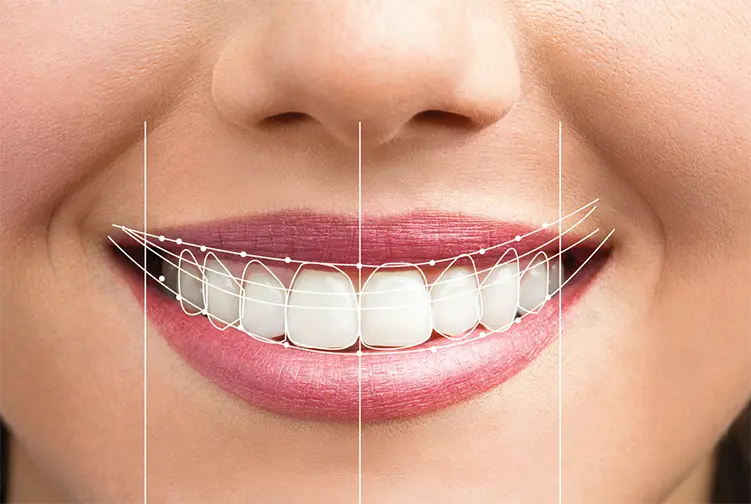There are several conditions that may prevent a person from having dental implants. These include:
- Insufficient bone tissue in the area where the implant will be placed, which increases the risk of implant failure. In this case, bone augmentation procedures or bone grafts may be needed.
- Severe periodontal (gum) disease, as this may increase the risk of implant failure after the implant has been placed.
- Serious infections in the mouth, which may increase the risk of implant failure after the implant has been placed.
- Excessive smoking, as this increases the risk of implant failure.
- Wound healing problems after the implant has been placed, such as bone healing disorders, which may increase the risk of implant failure.
- Severe malocclusion (misaligned teeth) in the mouth, which may prevent the proper placement and function of the implant.
- Insufficient bone tissue in the mouth during the implant placement process, which may prevent the implant from being placed or require bone grafts.
- Insufficient gum tissue in the mouth during the implant placement process, which may prevent the proper placement and function of the implant.
Is dental implant treatment painful?
Dental implant treatment is the process of placing dental implants, which is performed by dental professionals using an anesthetic, so it is painless.
However, in some cases, pain may be felt after the implant placement procedure, and this pain is generally temporary.
There will be no pain in the area where the dental implants are placed afterwards. If you have any concerns about the implant placement procedure, you can discuss them with your dentist to get more information.
How can I prevent pain after implant treatment?
There is a possibility of pain after implant treatment, but the following measures can help reduce or eliminate the pain:
- Regularly use painkillers prescribed by your doctor.
- Gradually increase your daily activities, being careful not to put too much strain on the implant area.
- If the pain is severe or continuous, contact your doctor to consider adjusting the painkiller dosage or considering alternative painkiller options.Remember, every patient is different and pain levels can vary. Work with your doctor to find the most suitable method to reduce pain according to their recommendations.
Which is better, implant or removable dentures?
If you have to choose between dentures and implants, you need to consider a few factors to determine which one is more suitable.
An implant is an artificial part that is surgically placed in the bone structure to replace the teeth in the body.
Implants look like natural teeth and have chewing capacity. In addition, the chewing capacity of implants is equal to that of natural teeth, so you can eat, swallow, and if you wish, brush your teeth with a toothbrush and dental floss.
Dentures are artificial teeth that are not as natural-looking as teeth and are removable.
Dentures are made after you lose your teeth and replace your teeth.
Dentures are artificial teeth that are placed to replace your teeth and are placed to replace your teeth.
Dentures have a low chewing capacity, so you can only eat soft foods and you cannot brush your teeth with a toothbrush and dental floss because they are removable.
The main difference between implants and dentures is that implants look and function like natural teeth, while dentures do not look natural and have a lower chewing capacity. After losing your teeth, you should consult with a dentist to determine which option is more suitable for you.
WHAT ARE THE CONDITIONS WHERE DENTAL IMPLANTS CANNOT BE APPLIED?
- Bone grafting: This method is used in patients who do not have enough bone in the area where the implant will be placed. This procedure is a prerequisite for placing the implant and ensures that the implant is securely held in place.
- Sinus lift: This method is used in patients who do not have enough bone in the area where the implant will be placed. This procedure involves adding bone to the upper jaw for the placement of the implant.
- Soft tissue grafting: This method is used to prevent tooth recession that may occur after the placement of the implant. This procedure can improve the appearance of the implant and maintain its natural appearance.
WHAT ARE THE TREATMENT OPTIONS FOR CONDITIONS WHERE DENTAL IMPLANTS CANNOT BE APPLIED?
In cases where dental implants cannot be applied, other treatment options that may be recommended by a dentist include:
- Repairing teeth: Teeth can be repaired with restorative methods such as bridges, inlays, and onlays. These methods preserve the natural appearance of the teeth and allow them to function.
- Partial dentures: These are dentures that are placed in place of a few missing teeth. Partial dentures can improve the appearance of the teeth and allow them to function.
- Full dentures: These are used in cases where all the teeth are missing. Full dentures can improve the appearance of the teeth and allow them to function.
The most suitable treatment option for each patient is determined based on the condition of the teeth and the recommendation of the dentist.
Therefore, it is necessary to consult with your dentist in cases where dental implants cannot be applied to determine which treatment option will be used.















